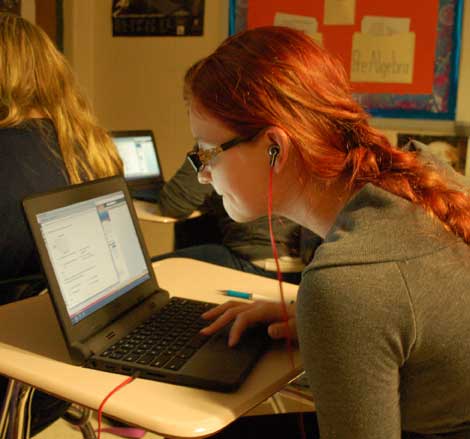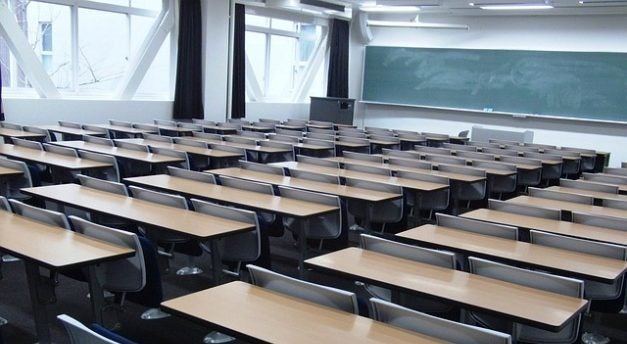Chromebook pilot program takes off
Published 10:35 am Tuesday, September 15, 2015

- Pre-Algebra student Kimberly Lowe, an eighth-grader, works on a quiz on her new Chromebook.
Buckingham County’s school division has launched a pilot program that has Chromebooks in the hands of every eighth-grader and many high school students.
County school board members recently approved the purchase of additional Chromebooks for the elementary and primary schools using funds from a school improvement grant.
A Chromebook is a small, thin laptop that uses Chrome OS as its operating system. The devices are designed to be used primarily while connected to the Internet, with most applications and data residing in a cloud, or an online storage file where documents can be easily shared.
According to Google For Education, “Even when Chromebooks are shared between classes, each student gets a completely personalized learning experience, including access to his or her own classwork, apps, books and videos.”
According to Division Superintendent Dr. Cecil Snead, integrating the technology into the schools is “part of our plan in our comprehensive plan to try to figure out how we can leverage technology to increase student achievement.”
The division spent over $67,000 to purchase the entire eighth grade Chromebooks, along with selected high school core classes. The devices will remain at school rather than the students taking them home.
Snead said that the devices were purchased through the division technology department’s saving money through e-rate and Virginia Public School Authority funds.
“You don’t have to bring your books to class,” eighth-grader Nakemien Jones said while sitting in front of a Chromebook in Pam Huskey’s Pre-Algebra class. Jones and his classmates were taking a self-check quiz on the devices that gives them immediate grades, sending the results to Huskey.
“They’re cool,” student LaDetra Swann said of the devices. She said they were easier to keep up with than loose papers.
Huskey, who’s in her 41st year of teaching, said the devices made it easier on the students because their core class textbooks were available on the Chromebooks. “They can take that home, leave it at home and do their homework,” she said of the heavy textbooks.
Middle School Principal J.B. Heslip says as his school looked at textbook adoptions for each core subject “every textbook would have a strong online component as well as great fundamentals. That online component would be compatible with our students’ Chromebooks. In other words, the student would not only have a physical textbook, but a digital textbook and interactive material to go along with every subject.”
Heslip said that with the integration of Chromebooks, eighth- graders are able to share and collect data, work on projects together using Google Docs, engage with interactive lesson plans, access individual tutoring online, access educational podcasts, create video projects and access educational material on YouTube.
“After we are successful with our eighth grade, I would like to ask for full implementation for the rest of our school. The vision is to eventually have ‘one-to-one’ [device ratio] for our students. …” he said.
Rudolph Roethel, the high school’s principal, noted that with the face of education changing, having “the ability to integrate this type of classroom technology will enhance our support for academic success of our students.”
“This particular technology will allow us to share information, access a wide range of data and formulate discussions across subjects, thereby enhancing the relatedness and relevancy of each individual course,” Roethel said.
He explained that the recently adopted Division Comprehensive Plan has a direction of a one-to-one ratio at the middle and high school for devices in instruction. “One of the obstacles we have is that … if we wanted the students to take them home, Buckingham County doesn’t have connectivity all over the county.”
As the division continues to evaluate the use of the devices, Snead said that if the pilot program is successful, the school board could consider additional Chromebook purchases.





